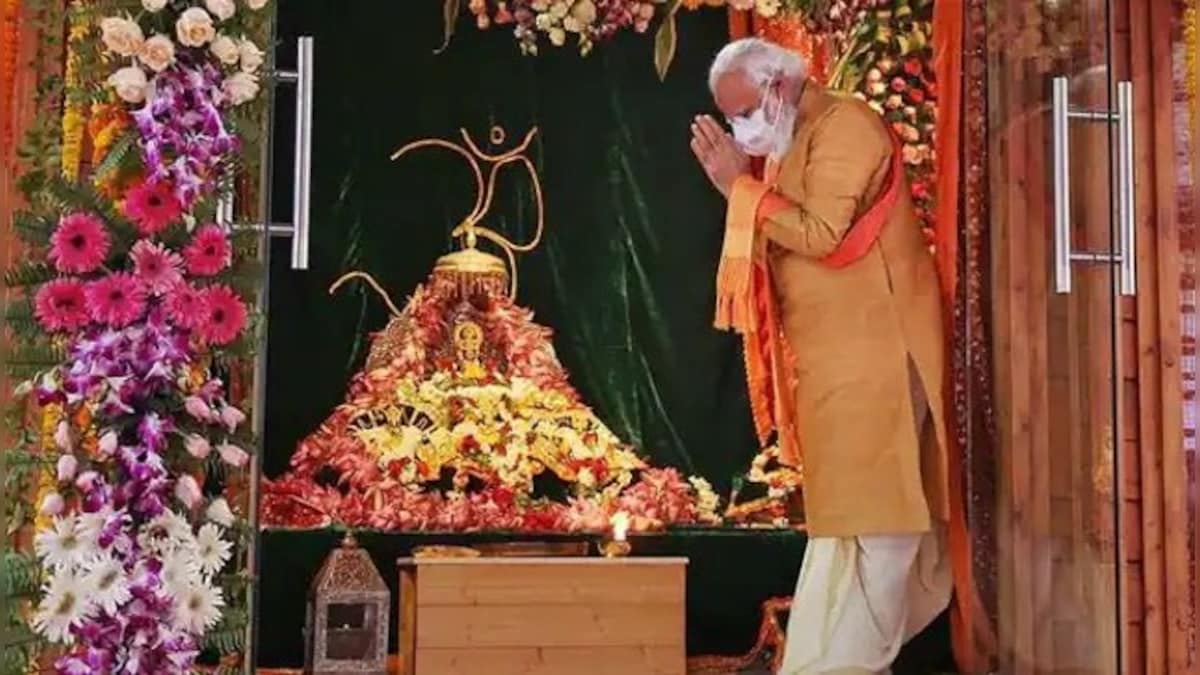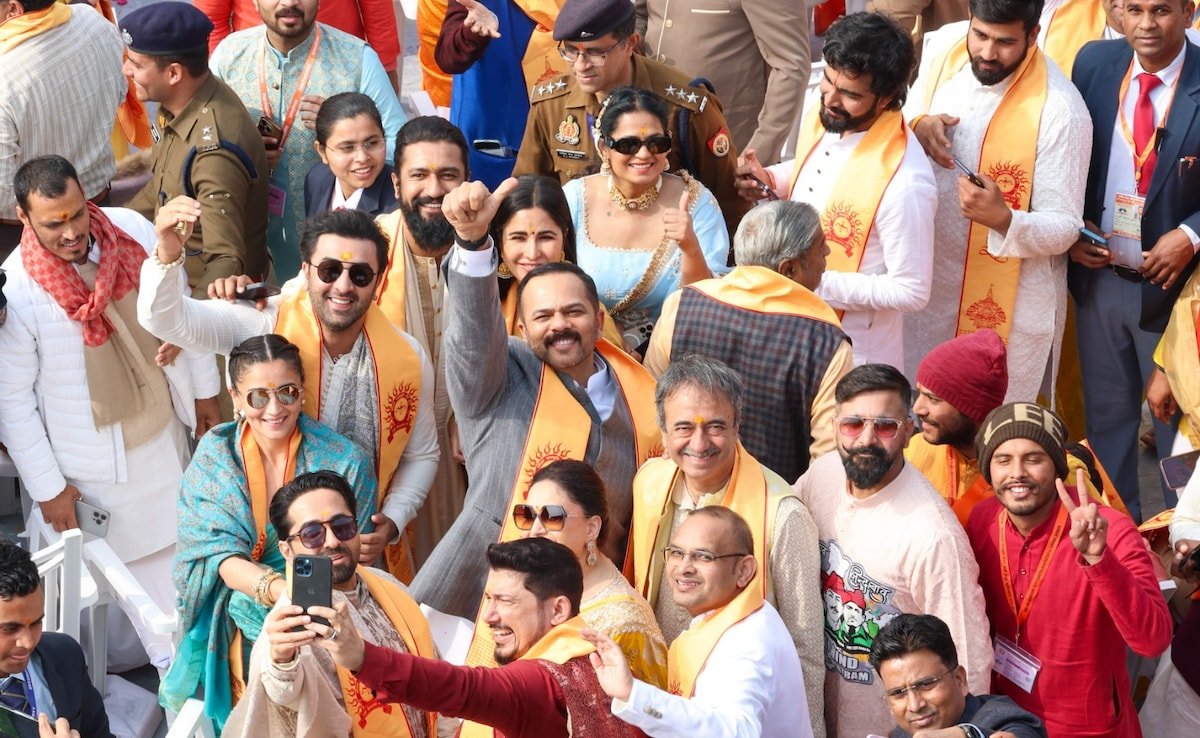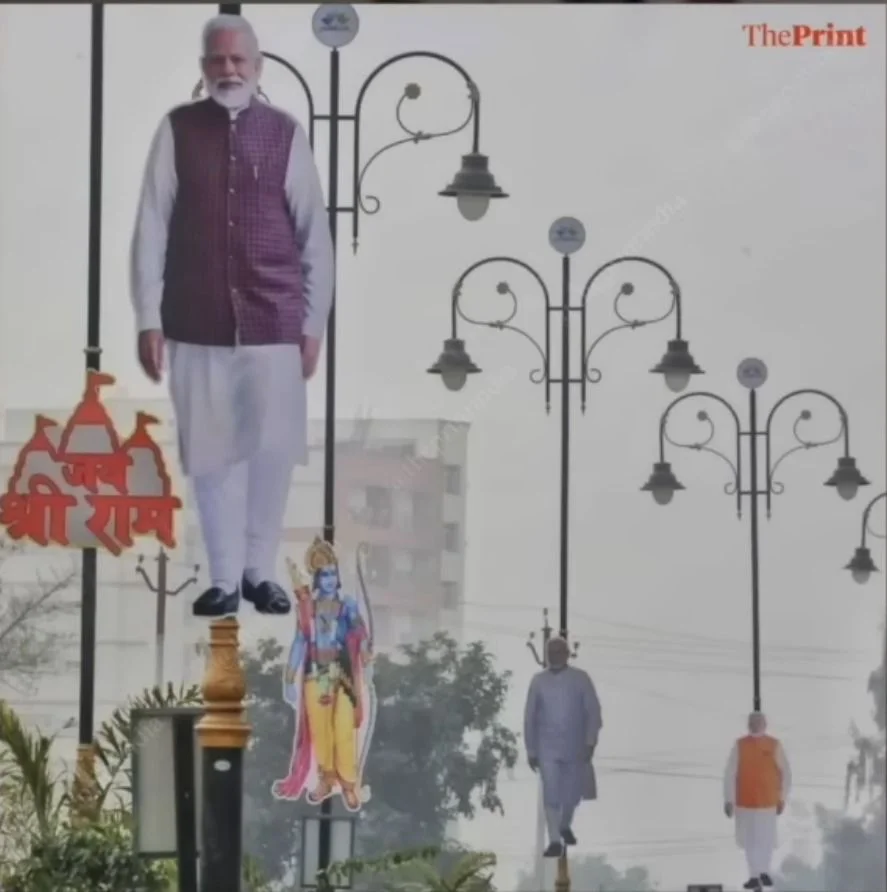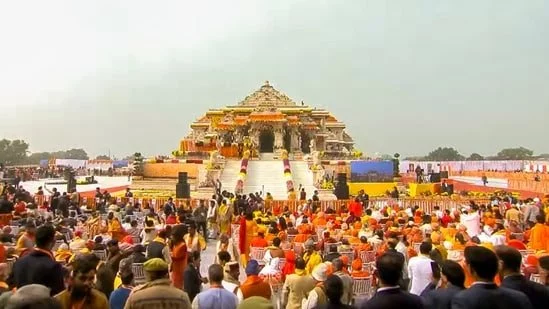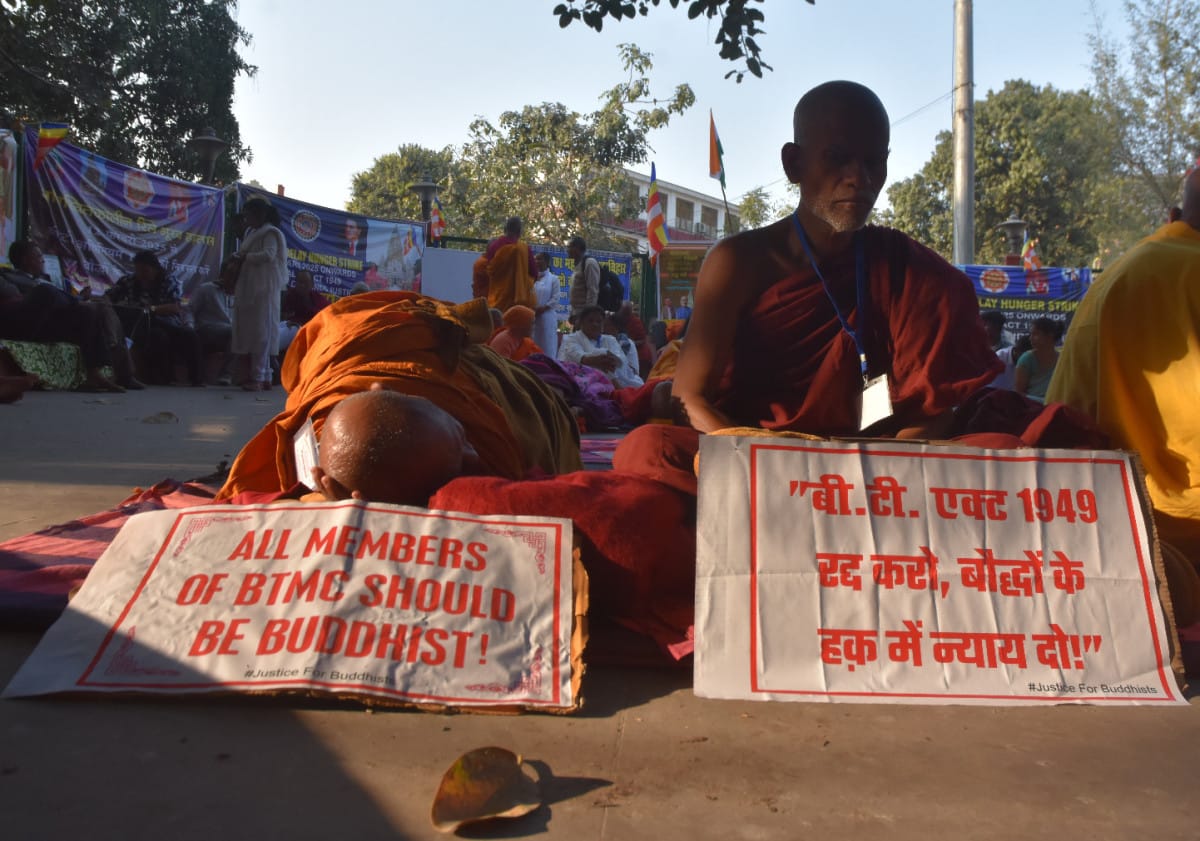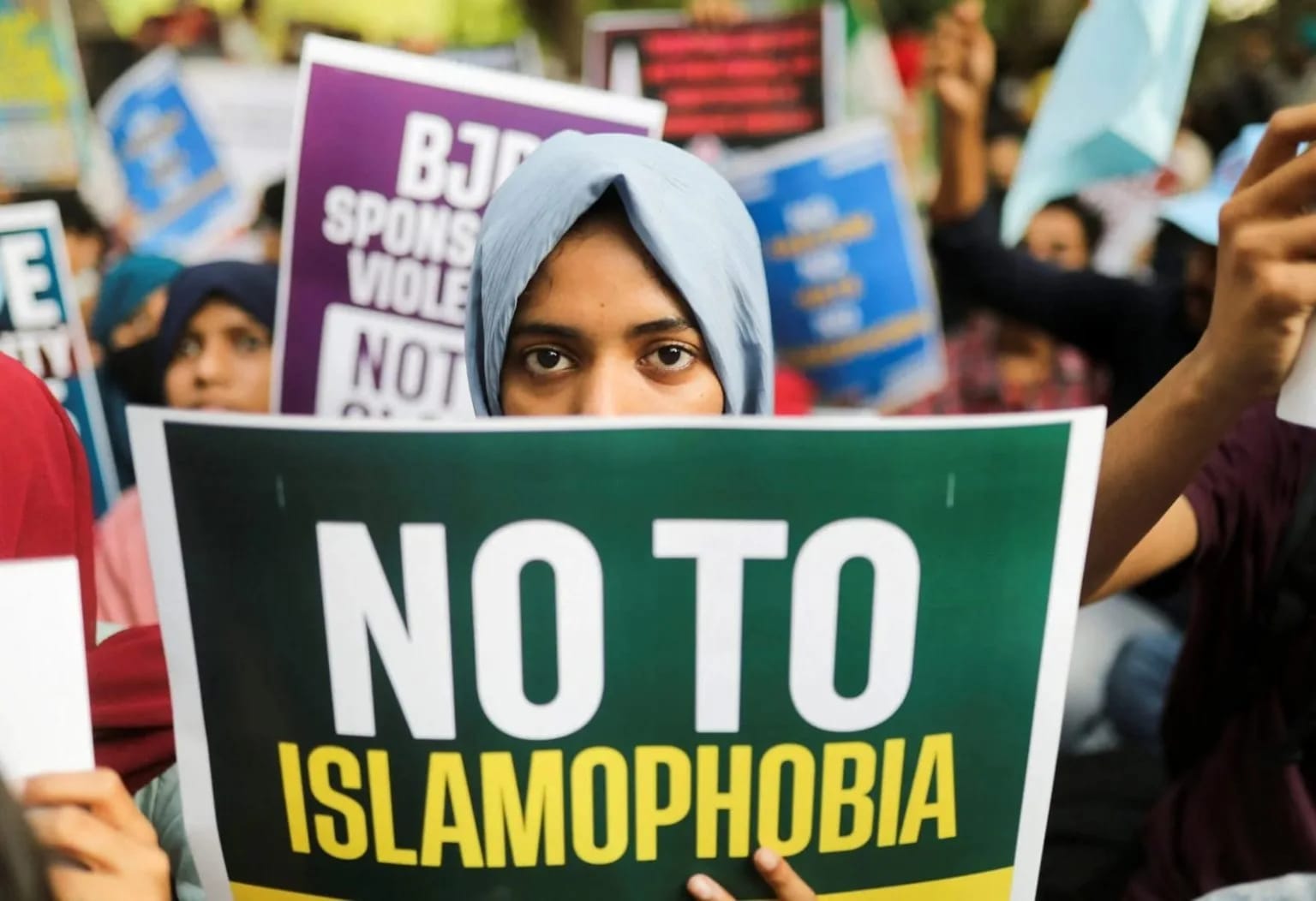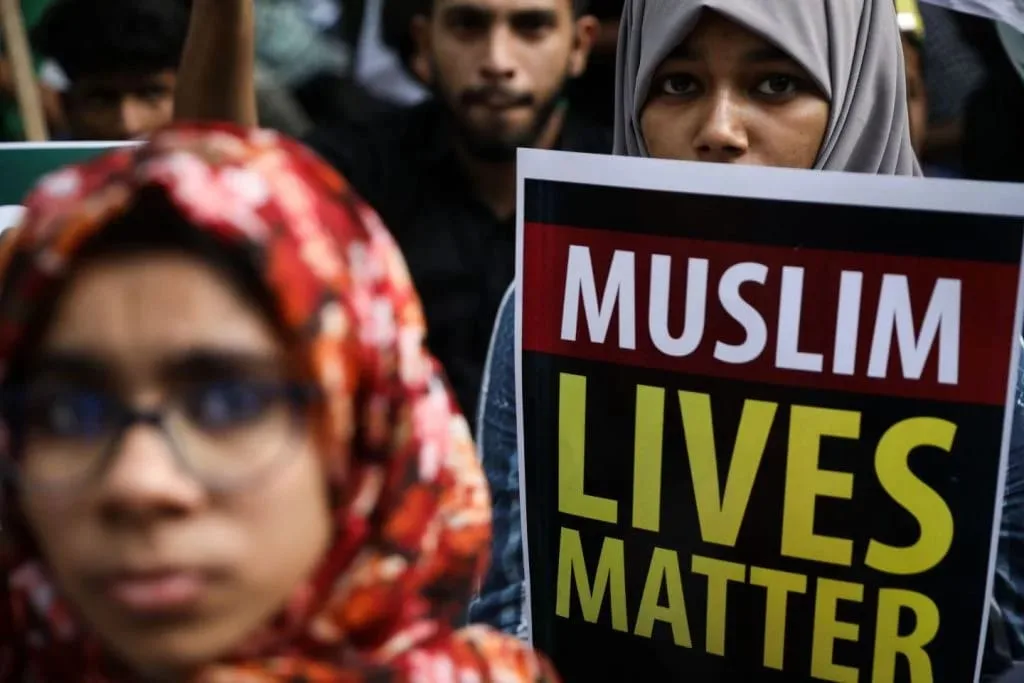In Anand Patwardhan’s 1992 film on the Ayodhya Ram Mandir controversy Ram ke Naam, Patwardhan interviews the then court-appointed priest of Ram janmabhoomi Laldas, asking the latter’s opinions on the Ram Mandir construction spearheaded by the Vishwa Hindu Parishad or VHP. ‘This is a political game played by the VHP’ answered Laldas ‘If they wanted to build a separate temple, why demolish a structure where idols already exist? Those who want to do this are actually more interested in creating tensions all over India.’
Addressing a public meeting in Ayodhya prior to the pran prathishtan event, Prime Minister Narendra Modi had said that the project for making India a developed nation is being boosted by the Ram temple inauguration in Ayodhya.
After the filming of Patwardhan’s Ram ke Naam, on 6th November of the same year, the Babri Masjid in Ayodhya was demolished by RSS cadres and on 22nd January, 2024, a grand Ram temple was inaugurated on the land, attended by the Prime Minister and several celebrities.
In the past few years of BJP’s tenure, Ayodhya was urbanised and gentrified for potential pilgrims to the Ram temple. Addressing a public meeting in Ayodhya prior to the pran prathishtan event, Prime Minister Narendra Modi had said that the project for making India a developed nation is being boosted by the Ram temple inauguration in Ayodhya. ‘Today, the foundation stone of development works worth more than Rs 15 thousand crore has been laid and inaugurated here. These infrastructure-related works will once again establish modern Ayodhya with pride on the map of the country. Today’s India is beautifying its pilgrimage sites and is also immersed in the world of digital technology,’ he had said.
It is indeed true that apart from the temple complex, Ayodhya has gained funding for many more developmental and infrastructural projects which had promised to boost tourism in and around the city and also turn the city into a regional growth hub that would propel business and economic activity in the wider area. Ayodhya was supposed to be a mega city boasting global standards which would attract lakhs of tourists daily thereby revolutionising the economy of the state and even its neighbours.
On closer inspection of the situations at Ayodhya, the defeat of BJP there does not seem as “unexpected” as it did when the results came out.
However, despite everything that was promised to them by the BJP, the voters of Ayodhya, belonging to the Faizabad constituency in UP, elected the Samajwadi Party candidate Awadesh Prasad over BJP’s Lallu Singh, who lost by a margin of 54,567 votes. On closer inspection of the situations at Ayodhya, the defeat of BJP there does not seem as “unexpected” as it did when the results came out.
The chimera of “developement”: local residents of Ayodhya and their grievances with the government
Narayanan Hariharan, a X (formerly Twitter) twitter user wrote on his wall, ‘UP (Uttar Pradesh) is a puzzle but Ayodhya is even worse. I’m scratching my head over the BJP’s loss in Ayodhya. They’ve got temples, hotels, jobs, and an airport – what more do they need? Thoughts?’ Indeed, UP was thought to be an easy win for Modi, after the Ram Mandir Inauguration and promises of development. However, Modi’s landslide loss in the Yogi-ruled state lays bare the fault lines in his political programme.
In order to build the Ram Mandir spread out over 7.4 acres, local houses and establishments were demolished by bulldozers, just a little distance away. The lament of the locals who were displaced in the name of development could be heard in the video reports from the region.
‘Modi’s slogan here is ‘Together with all, development for all and the trust of all’. But things are not moving along with that promise.’ says Azam Qadri, the President of the Sunni Waqf Board to The Independent.
While it is indeed true that Ayodhya got an airport, an international level railway station, roads and a promise of increased religious tourism out of the Ram Mandir inauguration, locals allege that when the Ram Path road was constructed, thousands of local-owned shops and houses were bulldozed. However, the affected locals were not compensated properly and were not reimbursed for the shops and houses built on government land. On raising the concern with their public representative Lallu Singh, the latter brushed it off as a matter of the government and did not pay heed to their issues and pleas.
Whenever the public went to him when their shops and houses were being demolished during the construction of Ram Path and for compensation as people go to their representatives for such issues, he ignored them saying that this is a matter of the government
Jeeshan Ahmed, shopkeeper and Ayodhya local.
After the government acquired the land in Ayodhya from the Raja of Ayodhya Bimlendra Mohan Pratap Mishra, who used to take only a small rent fee for locals living and working on the land, while the Raja got crores as compensation, the now landless tenants were given a mere one or two lakh, causing grievances within the local communities. While their shops were being demolished, the locals were chased away by the authorities with sticks.
A shop owner Jeeshan Ahmed alleged to The Statesman that Lallu Singh never listened to the people. ‘Whenever the public went to him when their shops and houses were being demolished during the construction of Ram Path and for compensation as people go to their representatives for such issues, he ignored them saying that this is a matter of the government,’ he said.
Out of the nine Lok Sabha constituencies in Ayodhya, the BJP lost from five in a stark contrast from 2019 when they had won seven of these nine seats. One of the constituencies from which the party lost was Faizabad, home of the Hindu Vatican, the Ram temple. The Faizabad seat was won by the Samajwadi Party’s Awadhesh Prasad Singh, a Dalit leader fielded from a general category seat. Losing Faizabad was a symbolic blow to the BJP which had won the constituency in both 2014 and 2019.
How long will BJP play on communal sentiments?
The people of Ayodhya have spoken and the verdict is clear- BJP’s political project of communal hate will not work anymore. It seems that slowly, people are realising what a threat BJP poses to the overall well-being and sustainable growth of the nation and are choosing better alternatives. It is ironic that BJP lost from the seat they were most confident about, but in no way is it surprising.
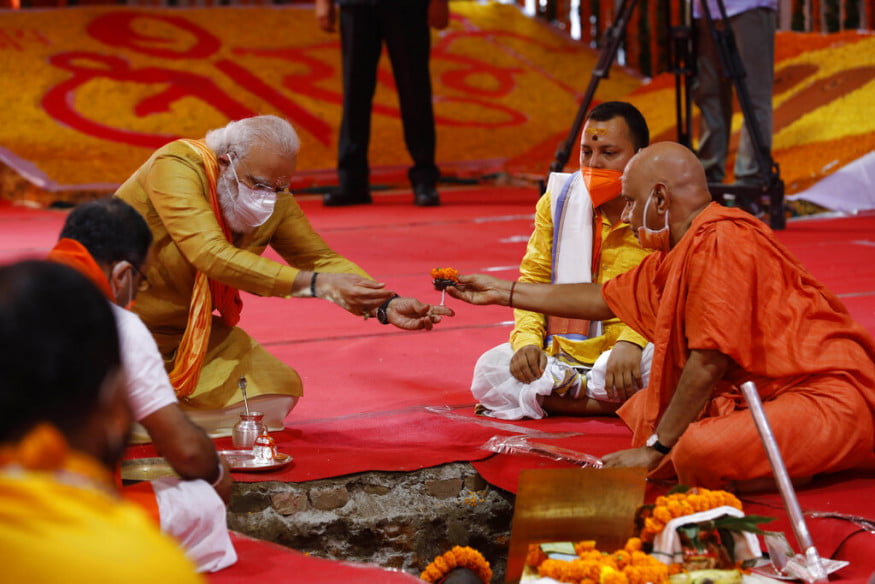
Electoral credibility is built on ensuring public safety and well-being and by taking positive developmental steps. The results of this election showed that logical and secular India is still not dead, despite BJP’s attempt to murder it. The people, the biggest opposition of all, showed that electoral political games can never be won by exploiting public religious sentiments, playing on communal tensions and making empty promises.
Does BJP’s loss in Ayodhya herald the awakening of the people and the death of communal politics in India? While we still can’t stay for sure, it is certainly a step towards safeguarding democracy in India, which is ultimately taken by the people.
What does the Ayodhya loss mean for BJP?
The BJP has not taken well to the loss in Ayodhya, and UP at large and one might fear the possibility of some horse trading already happening in the background. Even though the opposition is stronger than before, the BJP has so much blood on their hands that they need to prevent anyone else from coming to power in order to safeguard their criminal past, a pattern seen among many dictatorial governments.
The BJP has not taken well to the loss in Ayodhya, and UP at large and one might fear the possibility of some horse trading already happening in the background.
This might lead to Modi trying to keep his seat using more gruesome and desperate measures and while one can afford to be somewhat hopeful, more dictatorial and autocratic tendencies are expected from the BJP government who are coming back for a third term.
What does the verdict by the people say about BJP’s Hindutva-washing?
While campaigning for Kartik Chandra Pal, the BJP’s candidate in Uttar Dinajpur’s Raiganj constituency in West Bengal, Amit Shah had played on religious sentiments for votes. ‘Aap ne humein 18 seats di or humne udhar Ram mandir ki sthapna ki; aap humein 35 seats dijiye, Ram Bangla se sare ghuspaithiyon ko hata denge (You gave us 18 seats and we gave you Ram mandir, you give us 35 seats this time and Ram will drive away all the infiltrators from Bengal),’ Shah said, referring to Bengal’s Muslim population who form the majority of the Bangladeshi migrant labourer demographic in the state.
Playing on communal sentiments for votes has been a well known tactic of right wing political parties like the BJP who want to win the elections by inciting a purported sense of Hindutva victimhood. By convincing their target voters, the Hindus, that Muslims are out to get them and destroy their “age-old” culture, right wing political organisations in India have made sure to perpetuate the “Divide and Rule” policies of the British colonisers.
Being the parliamentary wing of rabid Hindutva organisations like the Vishwa Hindu Parishad and the RSS, the BJP portrays hate-sanctioned projects like the Ram Mandir as huge wins for India’s Hindu community. However, the people of India, reeling under the curses of unemployment, inflation, corruption, gender based violence and discrimination on the basis of marginalised identity, no longer see temple construction as something that could improve their living conditions and ensure their safety, security and well being.
If the election results and the BJP’s loss in Ayodhya conveyed something, it is that communal politics has no place in a democracy and Hindutva-washing will not work anymore in “new India”.
If the election results and the BJP’s loss in Ayodhya conveyed one thing, it is that communal politics has no place in a democracy and Hindutva-washing will not work anymore in “new India”. The people will make themselves heard, maintain the health of the democracy and ensure that leaders stay accountable, one vote at a time.
About the author(s)
Ananya Ray has completed her Masters in English from Jadavpur University, Kolkata, India. A published poet, intersectional activist and academic author, she has a keen interest in gender, politics and Postcolonialism.
